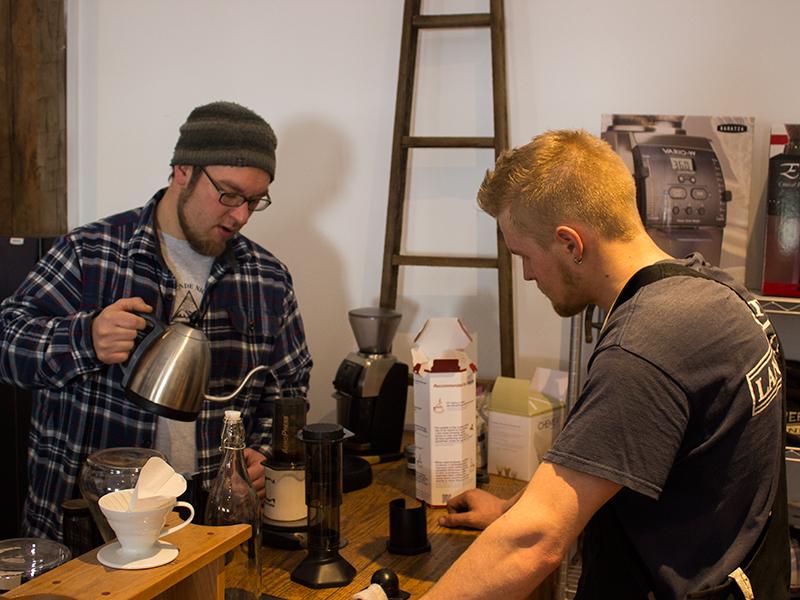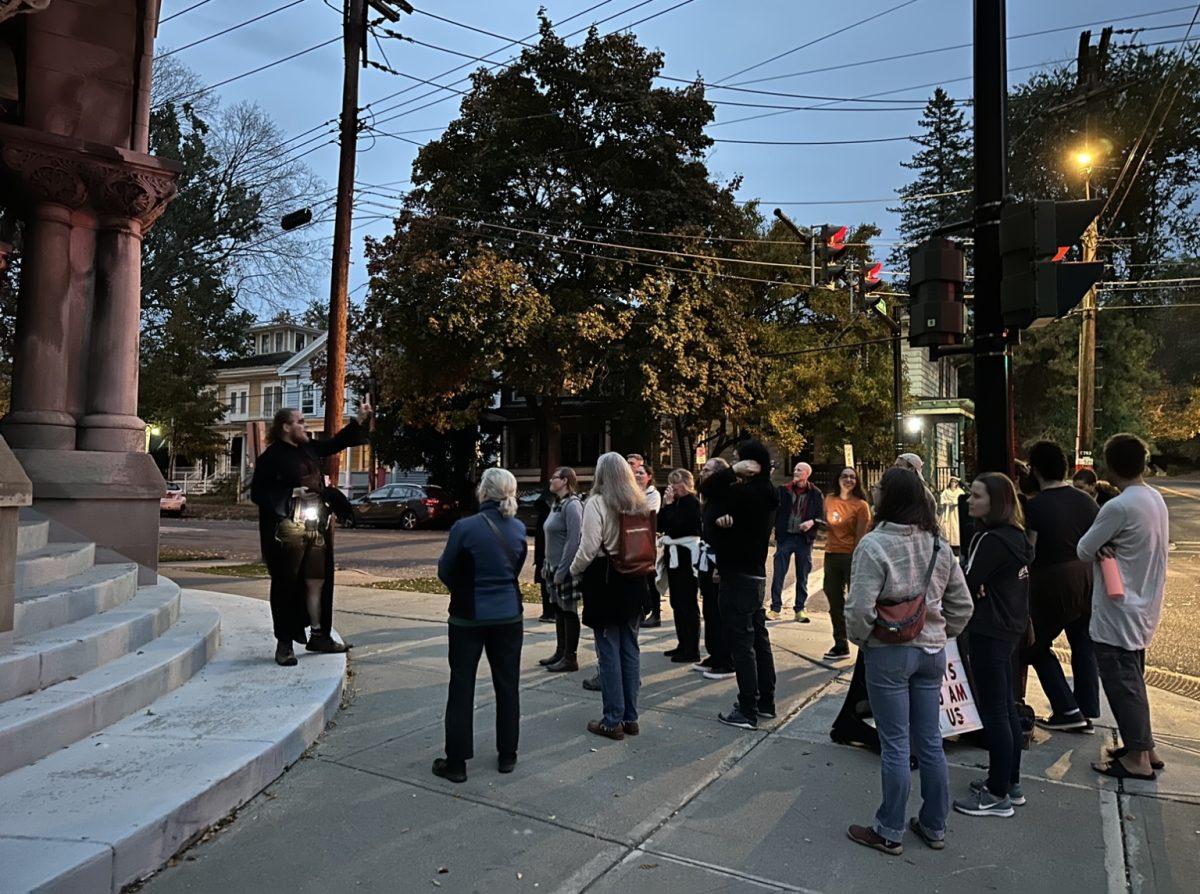Copper Horse has experienced an additional boost in business in the few weeks following its win at America’s Best Espresso Competition in Atlanta. “Just on Sunday and Monday it doubled my weekly online orders,” said roaster Jesse Harriott, one of Copper Horse’s three owners and the only full time employee. “We shipped coffee to Sweden.”
While the average number of cups regular American coffee consumers drink has decreased over time, a Harris Interactive poll of consumers from 2013 shows that 71 percent of those ages 18-35 now purchase prepared coffees. Most notably, the 2014 National Coffee Drinking Trends claim that 34 percent of consumers drink artisan coffee daily, up 3 percent from last year, while daily consumption of non-artisan coffee is at 35 percent, down four percent since last year.
Harriott said he’s also noticed a substantial rise in the number of customers stopping at the roastery, despite the fact that it still has no official hours due to the fact that he is working two additional jobs while the business gets established
While Ithaca Coffee Company has provided locally-roasted coffee for years, in 2000 Gimme! Coffee opened its doors, first marking the spread of a more artisan coffee culture to Ithaca. In 2010, Forty Weight Coffee Roasters got into the game, and this past September, Copper Horse opened. But the addition of new micro-roasters to Ithaca the last few years has in no way harmed Gimme’s status as top coffee dog.
“We posted our best years ever in our Cayuga Street, State Street, and Trumansburg locations,” said Gimme founder and CEO Kevin Cuddeback. “So I think that’s more of an indicator that the emergence of additional high end specialty roasters in Ithaca may likely be supported.”
I think that there’s enough room for everybody,” agreed Andrew Hetzel, founder of Cafemakers, a consultation company that provides quality analysis and company branding for specialty coffee companies. “One thing that’s really interesting about coffee is that there’s no limit––or at least we’re nowhere near reaching some kind of limit––to how much can be consumed. It’s really an elastic market.”
This push towards artisan coffees has been facilitated by the rise of interest in locally-produced foods of all kinds, according to Hetzel.
“Everything that we serve our guests for breakfast is probably from within a five mile radius of where we live,” said Rita Rosenberg, co-owner of Rosebarb Farm, just a mile from Copper Horse. “This is totally all about buying locally, it’s all about promoting our agri-culinary tourism effort in the county.”
But while Ithaca’s ‘buy-local’ ethos might make it the perfect home for micro-roasters, the established coffee culture that Gimme spearheaded definitely means there’s a high bar for new roasters to meet in order to be successful.
“What you don’t hear is when coffee companies go out of business,” said Dan Cox, owner and president of the consulting company Coffee Enterprises. “Coffee companies are going out of business as fast as they’re opening up.”
But Harriott is up for the challenge. “Being in an area where great coffee is pushes you to want to do your best,” he said.
Within five years he hopes to have two to three employees working under him and a tasting room somewhere in town.













